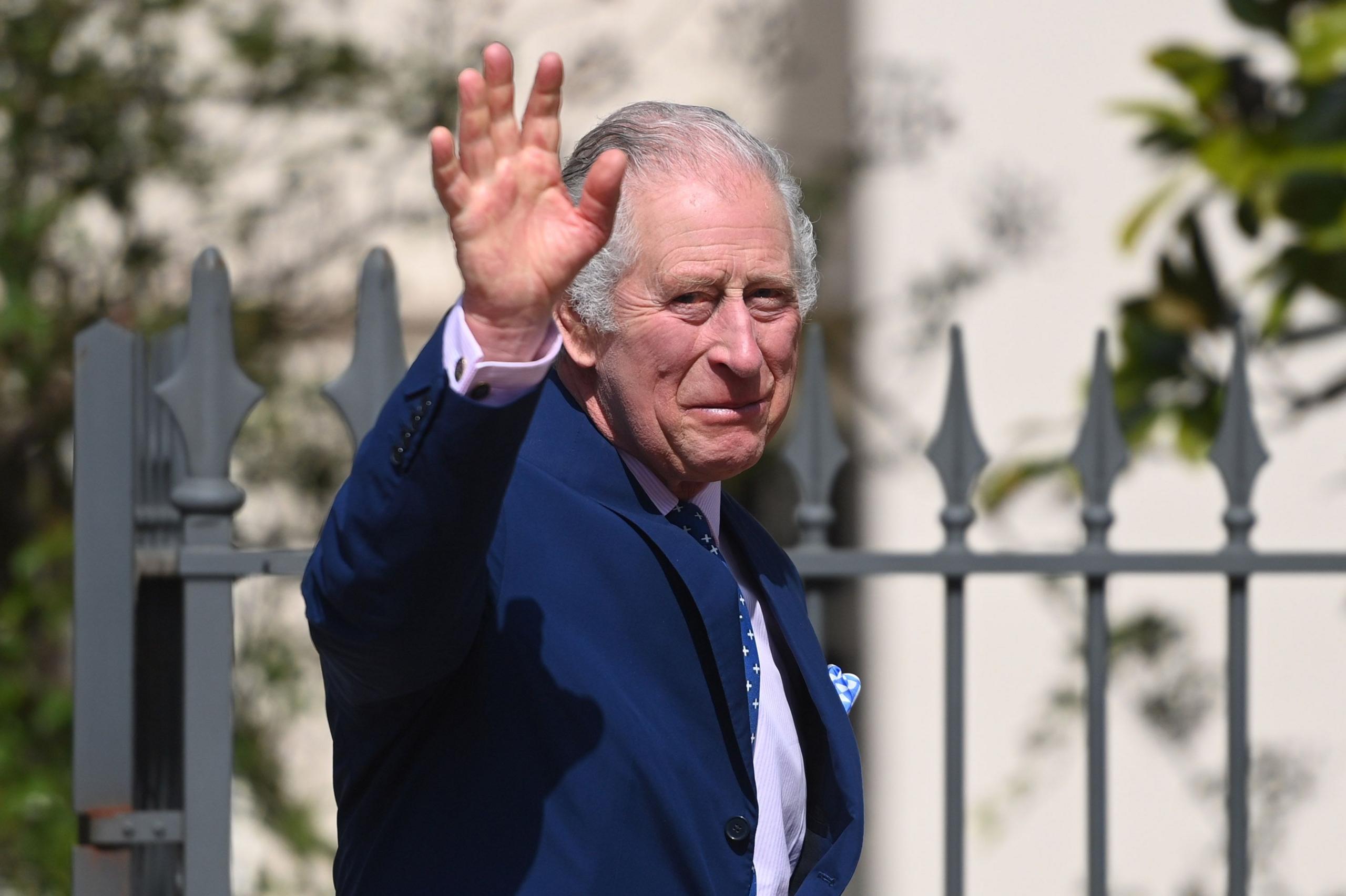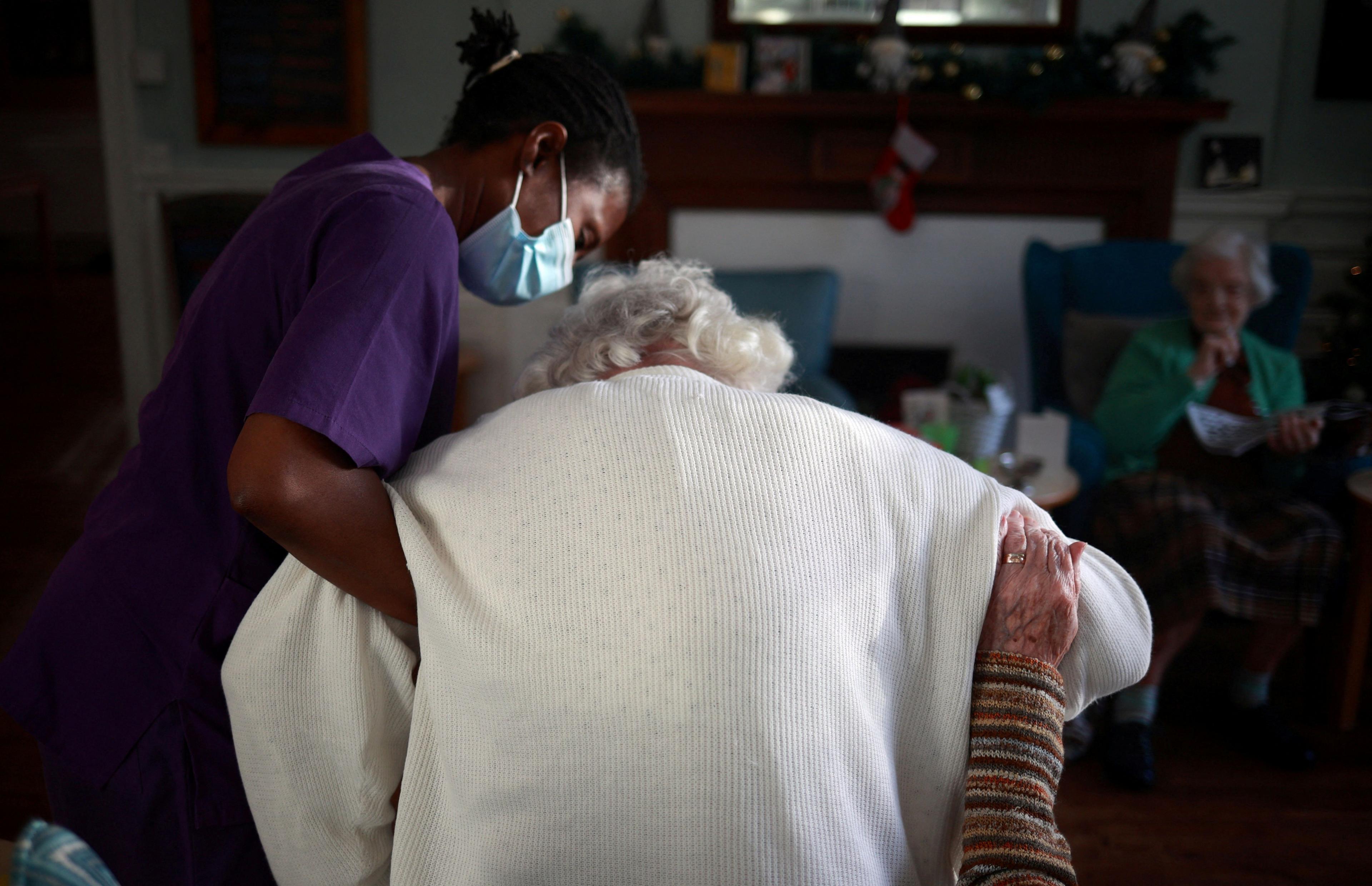King questioned 'red tape' rules hitting society

The then Prince of Wales said that certain laws created “increasing difficulty in many walks of life”
- Published
A letter written by King Charles complaining about government “red tape” more than 20 years ago has been released by the National Archives.
In the 2002 letter, the then Prince of Wales said to a senior UK government minister that “more prescriptive laws” were creating “increasing difficulty in many walks of life”.
His letter focused on the ability of volunteers to cook at home for people in care homes and soldiers being allowed to take part in live firing exercises.
The King said he’d been “warned” by the then Prime Minister Tony Blair that his views might not be welcomed, but he would like to discuss them with the cabinet minister.
Letter called King's uni friend an undue influence
- Published17 September 2022
King thanks Charlie for letter of cancer support
- Published19 March 2024
There have been previous claims that Charles was trying to “meddle” in government policy which he should not be doing as a member of the Royal Family.
In the February 2002 letter to Lord Irvine, who as lord chancellor was a senior legal aide to Mr Blair, Charles said he had previously written outlining his concerns over what he called an “increasing litigiousness” in UK society.
Some detail of the correspondence has been leaked previously.
In the full letter – which the former Prince of Wales himself calls “rather over-long” - he expresses concern over “extreme examples of litigation” and “bureaucratic red tape”.
He wrote: “The more I have thought about this group of issues, the more convinced I am that we are heading for increasing difficulty in many walks of life."
He identified problem areas, including social care volunteers unable to deliver hot meals, elderly people in care homes unable to open fire doors as they are too heavy, and infrequent live-firing training for soldiers.
“I am in little doubt that in the broadest sense, the proliferation of rules and rights, makes people overcautious, stifles initiative and acts as a brake on creative thinking," he said.
“The armed forces are an important example. Armies fight as they train. If you wish to do well in high-intensity war-fighting, you must also train at a high level of intensity.
"But because modern safety precautions are so strict, live-firing exercises happen with much less frequency than they used to”.

King Charles's letters mentioned issues on a broad range of topics such as care home and the Army
On care volunteers, he said: “The law now prevents volunteers cooking meals for residents at home, and then transporting them to the resident’s home to be reheated. It also prevents them from cooking meals in old people's homes unless they have undertaken a food hygiene course.
“Yet many of these sorts of volunteers are middle-aged ladies who have cooked for their families for 40 years without poisoning anyone.
“In order to protect the elderly from a tiny, but theoretical risk, a whole section of volunteers is in danger of being alienated.
“Those who institute the rules sometimes seem so evidently not to know what they are talking about."
Charles added: “I would not want you to think for a moment that I would argue against sensible ways to protect the interests of individuals and society from harm, irresponsibility and unfairness."
He ends the letter to the law officer saying he looked forward to having the opportunity to “talk through the issues more privately in more detail”.
It is not known if he did discuss the issues with Lord Irvine.
In 2015, the Supreme Court ruled that other private letters sent by Charles to Labour ministers between September 2004 and April 2005 could be published by media outlets.
In one letter to Mr Blair, the then prince said the armed forces were being asked to do a challenging job "without the necessary resources".
Under this legal ruling, 27 letters to seven government departments on wide-ranging subjects, including the dominance of supermarkets, badger culling and the herbal medicine sector, were published.
A UK government veto on publication was declared unlawful by the Court of Appeal last year - a decision which was upheld by the Supreme Court in March 2015.
You can find the 2002 letter on the National Archive , externalwebsite.
Analysis by BBC Wales Political Editor Gareth Lewis
We have known for years that Charles, when he was Prince of Wales, was not shy in coming forward to express his views to UK government ministers.
For some, it overstepped a constitutional line. For others, it was seen as a positive that he cared enough about certain issues to raise them with politicians.
What strikes me from this letter is that Charles fully realised that his comments and involvement might not go down well, after being warned as such by Tony Blair.
It does make you wonder what we will find out in 20 years, after all the recent political turbulence.
What sort of correspondence will we discover between Prince Charles and numerous Conservative prime ministers?
And what sort of correspondence between King Charles and Liz Truss and Rishi Sunak, as well as the new Labour government under Keir Starmer?